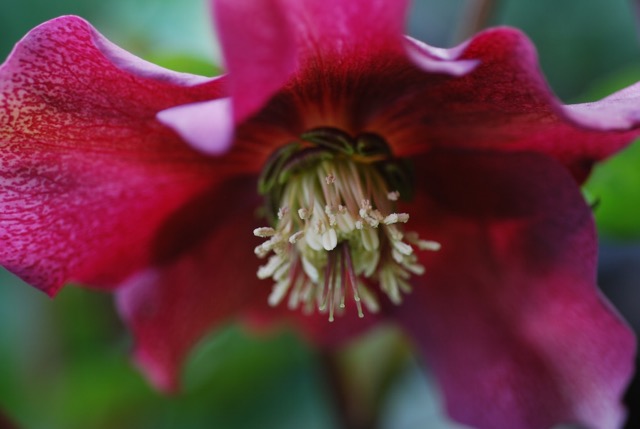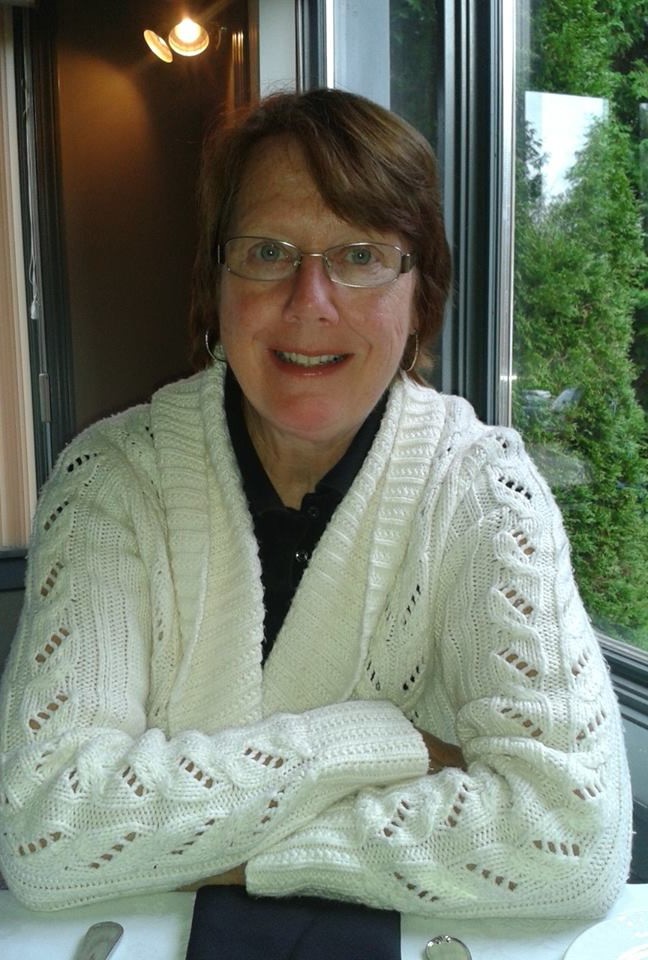
Photo by Bev Rennie
“Like Rapture Breaking on the Mind”: The Art of Ecstasy in the Poetry of Stanley Kunitz
by SANDRA LYNN HUTCHISON
I had long admired the poetry of Stanley Kunitz when in the winter of 1996 I had the chance to attend a poetry reading and book launch featuring Kunitz’s Passing Through: The Later Poems, New and Selected at a Greenwich Village bookstore. I had just moved to Manhattan, and I was eager to immerse myself in the vibrant cultural life of the city. A poetry reading by Kunitz, who at the age of 91, was not merely a well-established American poet but an iconic figure in any literary circle, seemed a good place to start. I wondered what the launching of a book — possibly a last book — by a much loved Pulitzer Prize winning poet would be like.
Kunitz’s reading was not especially well attended — about 20 people, I estimated, which might have seemed like a good turn out for a lesser poet, but not for this senior statesman of American letters. But when Kunitz began to speak, it seemed as if he were addressing a crowd of hundreds. Assuming the Shelleyan stance of the poet as prophet and seer, he recited the words of William Blake: “Every thing that lives is Holy....”
For me, the line from Blake set the tone for a reading that was not only mesmerizing, but also a little awe-inspiring. As I listened to him read from his poems, it seemed to me that for Kunitz poetry was a kind of calling. He did more than just write his poems: he believed in them. For him, I suspected, poetry and the practice of poetry served as creed and gospel. And like Blake and the Romantic poets, I learned later, Kunitz viewed the poet as a channel for divine inspiration. As he explains in his foreword to Passing Through, the kind of craft he most admires shows itself as “a form of spiritual testimony.” “Art is that chalice,” he writes, “into which we pour the wine of transcendence. What is imagination but a reflection of our yearning to belong to eternity as well as to time?”
It was no surprise to me, then, when I learned that Kunitz had produced an edition of Blake’s work and that in his introduction to it, he had referred to Blake as “the first modern poet.” As Kunitz points out, Blake’s notion that “Without contraries is no progression” precedes the dialectical philosophies of Mark and Hegel; and Blake’s vision of a new heaven, a new earth, and a new kind of highly spiritualized human being, predates the apocalyptic millennialism of the final years of the nineteenth century. In the estimation of Kunitz, Blake, with his “songs of such purity and eloquence,” served as a beacon and a model for a kind of contemporary poetry that might claim its source in divine inspiration.
As a writer of poetry myself, I could understand how a poet might feel that the creative act offered a vital connection to the world of the spirit. If scripture gives us a map of that world, then poetry is the compass rose of that map. Of his work, Kunitz writes in the foreword to Passing Through:
The poem comes in the form of a blessing — like ‘rapture breaking on the mind,’ as I tried to phrase it in my youth. Through the years I have found this gift of poetry to be life-sustaining, life-enhancing, and absolutely unpredictable. Does one live, therefore, for the sake of poetry? No, the reverse is true: poetry is for the sake of the life.
This is not to suggest that Kunitz is a throw-back to another age. No, the poetry of Kunitz fully embraces a modernist perspective, incorporating into its body the tangible fruits of failure and loss, even of personal tragedy, such as the suicide of his own father when he was in his mother’s womb. But Kunitz’s poetry does not rest in tragedy; rather, it seeks and finds cause for redemption, even ecstasy, in the ardors and imperfections of human life.
During the reading, I remember reflecting on how challenging it must be for a contemporary poet to speak in the tongue of ecstasy. Informed, as all poetry is, by the spirit of the age that gives it birth, the contemporary poem demands that the writer maintain some modicum of distancing irony. Yet in a poem such as “The Round,” Kunitz speaks in the tongue of ecstasy while, at the same, reflecting with gentle humor and a sense of irony on his own poetic process:
THE ROUND
Light splashed this morning
on the shell-pink anemones
swaying on their tall stems;
down blue-spiked veronica
light flowered in rivulets
over the humps of the honeybees;
this morning I saw light kiss
the silk of the roses
in their second flowering,
my late bloomers
flushed with their brandy.
A curious gladness shook me.
So I have shut the doors of my house,
so I have trudged downstairs to my cell,
so I am sitting in the semi-dark
hunched over my desk
with nothing for a view
to tempt me
but a bloated compost heap,
steamy old stinkpile,
under my window;
and I pick my notebook up
and I start to read aloud
the still-wet words I scribbled
on the blotted page:
“Light splashed...”
I can scarcely wait till tomorrow
when a new life begins for me,
as it does each day,
as it does each day.
In its repetition of words and phrases, this poem is kin to the chant. But the poet does not give way to pure lyric. Rather, in the spirit of amused self-parody, Kunitz reflects on what it has taken him to get down to the task of writing the poem — on how hard it is for any poet to give the kind of intense focus required to capture the moment of grace a poem is meant to embody: “so I have trudged downstairs to my cell,/so I am sitting in the semi-dark/ hunched over my desk,/ with nothing for a view,/ to tempt me/but a bloated compost heap/ steamy old stinkpile,/ under my window....”
As the poet picks up the page of “still-wet words” and he reads them aloud — “Light splashed” — he is both celebrating the moment of beauty he has captured in his poem and also looking with gentle humor at the seriousness of his own poetic enterprise. It is this kind of distancing technique that prevents Kunitz’s poems, with their high rhetoric and lofty ideas, from spilling over into sentimentality or, worse for the contemporary poet, into an unconscionable romanticism. What matters for Kunitz in this poem is not the beauty of his garden, but rather his own response to it: the “curious gladness” he feels when viewing it and contemplating the cyclical quality of life, its repetitions and infinite variety: “I can scarcely wait till tomorrow/ when a new life begins for me, /as it does each day,/ as it does each day.” The “shell-pink anemones,” the “blue-spiked veronica,” the “humps of the honey bees,” the “silk of the roses,” the “late bloomers flushed with their brandy.” The imagery is rich and sensual, and the language is dense and compact. Yet these poems are not overwritten. Kunitz gives them only what words they need — nothing less, nothing more. In the extravagance of the voice itself is embedded a kind of pose — as if the poet, conscious of his tendency to get carried away by the ecstasy of his own rapture, is working to keep his emotions in check by refusing to take them too seriously. This is ecstatic utterance, but the words are framed by an awareness of mortality: ecstasy is a large emotion, but a finite one. Life lasts hardly a day, but each moment is to be embraced with passion and humor.
Kunitz writes a good deal about his childhood, possibly in response to the trauma of his father’s suicide. But childhood is not, for Kuntiz, merely a dark time riddled with a sense of loss. In a poem such as “My Mother’s Pears,” childhood is also seen as a time of Blakeian innocence when perceptions are sharp, intense, and fresh. In this poem, the pears, “Plump, green-gold, Worcester’s pride,/ transported through autumn skies/ in a box marked HANDLE WITH CARE” become the symbol of Kunitz’s childhood — “These strangers are my friends/ whose kindness blesses the house/ my mother built at the edge of town....” The metaphor of the pears is so skillfully sustained and so elaborately refined that by the end of the poem it encompasses all the sadness and the joy of Kunitz’s complex childhood.
Towards the end of his reading, Kunitz reads the title poem of his volume, “Passing Through,” in which he reflects on his death and on the time that still remains: “Sometimes, you say, I wear/ an abstracted look that drives you/ up the wall, as though it signified/ distress and disaffection./ Don’t take it so to heart... Maybe/ it’s time for me to practice/ growing old/ The way I look/ at it, I’m passing through a phase:/ gradually I’m changing to a word.” As Kunitz asserts at the end of the poem, he has only “borrowed this dust.” What he will be, in the end, is the sum of his poetic work.
Kunitz finished the reading at the Greenwich Village bookshop with a powerful rendering of that great poem of his later years — “Touch Me,” a poem that is, at once, a love poem and a bold affirmation by a man in his later years of the sensual nature of the human bond: “Desire, desire, desire. /The longing for the dance/ stirs in the buried life./ One season only,/ and it’s done.” In this last poem in a book that sums up more than 90 years of living and loving, Kunitz does not hesitate to proclaim what is, for him, a final truth: “So let the battered old willow/ thrash against the window panes/ and the house timbers creak./ Darling, do you remember/ the man you married? Touch me,/ remind me who I am.”
Kunitz’s belief in the possibility of continued renewal, of being born again and again into this life; his celebration of natural beauty as a mirror image of the divine; his penchant for speaking of ecstasy in an ecstatic tongue; his fascination with the poem as a crafted thing, which is, nevertheless, connected to life by the human voice; his persistent hold on the larger questions; and the bardic intensity with which he dares to deliver his answers — all make Stanley Kunitz’s poetry an important and much-loved body of work to which any reader can come to find solace, inspiration, and an affirmation of what it means to embrace those perplexing but, ultimately, joyous contradictions that lie at the heart of human life.

Her stories have been anthologized in a variety of publications, including Chinese Ink, Western Pen: The Oxford Anthology of Stories About China (Oxford U. Press, 2000). She holds a Ph.D. from the University of Toronto in English literature and has been the recipient of various academic and literary awards, including a Killam Postdoctoral Fellowship, an Emily Dickinson Poetry Prize from Universities West Press and a Jane Kenyon Poetry Scholarship from Bennington College, where she did work towards an MFA in Poetry.
She lives and teaches in Orono, Maine, where she is working on a memoir and a novel.